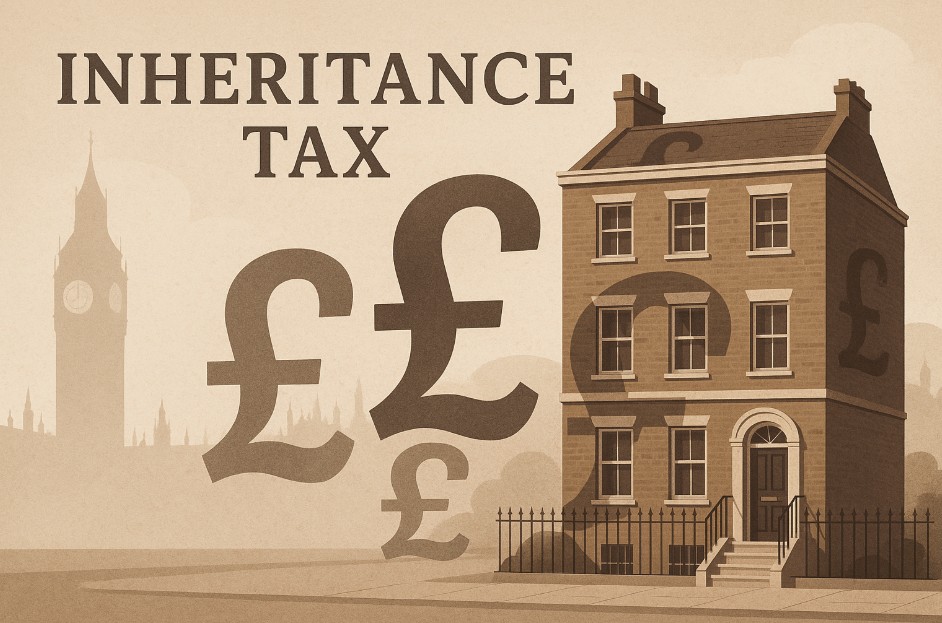Angela Rayner Inheritance Tax: Is a Major Wealth Reshuffle on the Horizon?
What Did Angela Rayner Propose About Inheritance Tax Relief?
In a political climate where fiscal reform is a core concern, a recently leaked memo from Deputy Prime Minister Angela Rayner has sparked a storm of controversy.
The memo, submitted to Chancellor Rachel Reeves ahead of the Spring Statement, outlines proposals that many view as a significant shift in the Labour Party’s approach to taxation, particularly inheritance tax.
Central to the leaked document is the proposal to completely eliminate inheritance tax relief on shares listed on the Alternative Investment Market (AIM).
This particular form of relief has long been a strategic tool for estate planning in the UK, especially among families, business owners, and investors.
By allowing certain AIM-listed shares to qualify for up to 100% inheritance tax relief under the Business Property Relief (BPR) rules, individuals have been able to transfer wealth with minimal tax liabilities.
This advantage was curtailed in the Autumn Budget when the relief was halved to 50%. Now, Rayner’s leaked memo suggests removing the benefit entirely a move estimated to raise between £100 million and £1 billion annually for the Treasury.
The suggestion, however, has drawn swift backlash from financial experts, investors, and entrepreneurs, who warn that it may have unintended consequences on business growth and wealth preservation.
How Would Removing AIM Share Relief Impact Investors and the Economy?

The implications of this policy are far-reaching. AIM shares are typically associated with smaller, high-growth UK companies. They offer investors a chance to support innovative businesses and, historically, have carried significant tax advantages.
By removing inheritance tax relief on these shares, Rayner’s proposal could fundamentally alter the nature of investing in British startups and SMEs.
Many investors specifically purchase AIM shares not just for potential growth but also for the inheritance tax efficiencies they offer.
Industry analysts like Jason Hollands, Managing Director at Evelyn Partners, argue that such a move could see wealthier individuals and business founders seek out more favourable jurisdictions with lenient tax rules.
This capital flight, in turn, would reduce funding for domestic companies, making it harder for them to compete, expand, or even survive.
Moreover, a shift away from AIM shares could reduce transparency in financial markets. Amisha Chohan from Quilter Cheviot expressed concern that savers might be nudged toward unlisted, less-regulated investments, potentially increasing their exposure to higher risk.
She stated that removing the relief could “drive capital away from listed UK growth companies” and reduce the attractiveness of AIM as a marketplace altogether.
What Is Labour’s Wider Fiscal Strategy According to the Leaked Memo?
The leaked memo offers a comprehensive window into Labour’s broader fiscal direction. It outlines ten major policy recommendation eight involving tax increases and two concerning benefits.
These proposals suggest a strong focus on increasing public revenue without introducing widespread spending cuts.
A notable trend in the memo is the targeting of higher earners and individuals with substantial savings or investment portfolios. Inheritance tax, dividend income, and pension wealth are all key targets under Rayner’s plan.
The goal appears to be a more redistributive tax system designed to narrow the wealth gap, but not without its critics.
Below is a summary of the proposals included in the memo:
| Proposal | Description | Estimated Revenue |
| Abolish AIM Share IHT Relief | Removal of all inheritance tax relief on AIM-listed shares | £100m–£1bn/year |
| Reinstate Pensions Lifetime Allowance | Cap pension tax-free savings at £1.073m or £1.8m | Up to £800m/year |
| Raise Bank Surcharge | Increase bank profits surcharge from 3% to 5% | £500m–£700m/year |
| Eliminate Dividend Allowance | Remove current £500 tax-free dividend income threshold | £325m/year |
| Freeze Higher Income Tax Threshold | Maintain the 45% rate for income above £125,140 until at least 2028 | Not specified |
| Increase Annual Tax on Enveloped Dwellings | Raise tax on corporate-owned residential properties (primarily in central London) | £100m–£200m/year |
| Close Stamp Duty Loophole | Reform stamp duty rules for commercial property transfers | Up to £1bn/year |
This aggressive tax stance is aimed at increasing public funding for key sectors, including the NHS, education, and infrastructure. However, the strategy raises questions about the balance between fiscal fairness and economic competitiveness.
Why Is Reinstating the Pensions Lifetime Allowance Considered Controversial?

Equally contentious is Rayner’s suggestion to reinstate the pensions lifetime allowance (LTA).
The LTA, previously abolished by former Chancellor Jeremy Hunt in 2023, capped the total amount an individual could save into their pension without incurring hefty tax penalties. Before its removal, the cap stood at £1.073 million.
According to Rayner’s proposal, the LTA could return either at its previous level or be adjusted to a higher threshold of £1.8 million mirroring limits from earlier Labour governments.
The rationale behind the reinstatement is to recover up to £800 million in lost revenue. However, this move has reignited fierce opposition.
Before the LTA was scrapped, exceeding it triggered a 55% tax if the excess was taken as a lump sum, or 25% if taken as income.
Industry leaders argue that this system disproportionately penalised public sector professionals, particularly senior NHS staff, many of whom chose early retirement or limited their work hours to avoid breaching the cap.
Financial analysts such as Laith Khalaf from AJ Bell have described the LTA’s return as a “massively retrograde step” that reintroduces complexity and discourages saving.
When combined with new rules due in 2027 where pension pots may become subject to inheritance tax upon death the tax burden on retirement savings could effectively double.
There are also concerns that any transitional arrangements, such as grandfathering rules for pension contributions made during the abolition window, would be excessively complex to administer and understand.
How Might These Policies Affect Family Wealth and Financial Planning?
From a household perspective, these proposals signal a tightening of the financial planning landscape.
Families who previously relied on AIM share relief, pension allowances, and dividend income exemptions may now face higher liabilities across the board.
One of the key criticisms of Rayner’s approach is that it may unintentionally penalise prudent financial behaviour.
Individuals who have carefully planned their retirement, or who have invested in legitimate, growth-oriented UK businesses, now face the possibility of significantly diminished returns.
If the pension LTA is reinstated and inheritance tax becomes more aggressive, savers might find themselves facing punitive charges when withdrawing their money, and again when passing it on to heirs.
Financial planners are already encouraging clients to review their investment portfolios, consider alternative estate planning tools, and prepare for a potential wave of new tax legislation in the 2025 Autumn Budget.
Moreover, these tax reforms could disproportionately affect middle-income families in areas with high property values.
For instance, someone inheriting a modest family home in London could be pushed into the IHT net simply due to rising market prices, not excessive wealth accumulation.
Are These Proposals Official Labour Policy?

As of now, none of these proposals have been officially adopted into Labour’s economic policy. The memo, while real, was an internal communication intended for preliminary fiscal strategy discussions.
However, the fact that such wide-ranging and aggressive reforms were considered at high levels of government has intensified scrutiny.
Angela Rayner’s growing influence within the Labour Party means her proposals are unlikely to be dismissed outright.
The pressure on Chancellor Rachel Reeves to raise revenue without introducing austerity is mounting, and this leaked memo provides a glimpse into how Labour might navigate that challenge.
While the leadership has yet to confirm which if any of these proposals will make it into the official Autumn Budget, the political messaging is clear.
There is a growing emphasis on wealth redistribution, closing loopholes, and increasing taxation on higher earners and passive income streams.
What Should Investors and Families Do to Prepare?
In light of the uncertainty, both individuals and financial institutions should consider proactive measures. While there’s no need for panic, a review of existing financial strategies is prudent.
Those holding AIM shares, pension pots close to previous LTA thresholds, or large dividend-yielding portfolios may need to reassess their options.
Professional advice is strongly recommended, particularly for estate planning. Some investors may benefit from diversifying their holdings into asset classes less likely to be targeted, while others may need to take advantage of current reliefs before potential legislative changes occur.
Financial planners also stress the importance of written wills, regular reviews of pension contributions, and timely gifts all of which can reduce future tax liabilities if executed within existing legal frameworks.
How Could These Tax Changes Influence the Broader UK Economy?

While the fiscal objectives of Rayner’s proposals are centred on funding public services, the broader macroeconomic impact could be mixed.
On the one hand, higher tax revenues could support investments in the NHS, education, and public infrastructure. On the other, reduced investor confidence, lower capital inflows, and slower business formation may counteract those benefits.
The proposals risk sending negative signals to both domestic and international investors. If key reliefs and allowances are withdrawn without clear alternatives, the UK could see a drop in its competitiveness as a place to invest and grow capital.
For the average citizen, this means fewer opportunities to build wealth, more complexity in managing finances, and potentially lower economic growth if business funding becomes constrained.
Frequently Asked Questions
What exactly did Angela Rayner propose about inheritance tax?
She suggested eliminating the 50% relief currently available for AIM-listed shares, which would significantly increase inheritance tax liabilities on these investments.
Why is this proposal controversial among investors?
It targets a legitimate and widely-used estate planning tool. Investors argue it will discourage investment in UK growth companies and push capital overseas.
What is the pensions lifetime allowance and why was it removed?
The LTA was a cap on pension savings above which taxes applied. It was scrapped to encourage more retirement saving, especially in the public sector.
How would reintroducing the LTA affect savers?
It could lead to high tax charges on pension savings and discourage long-term financial planning, particularly among NHS staff and higher earners.
Is the removal of the dividend allowance part of Labour’s official policy?
No, it is one of several proposals listed in a leaked internal memo. The party has not confirmed whether it will implement the measure.
How much could these tax changes raise?
Estimates suggest between £100 million and £1 billion from each major proposal, with the combined total potentially exceeding £3 billion annually.
What should individuals do in response to these proposals?
Review pension and estate plans, stay informed about policy developments, and consider seeking advice from a certified financial planner.







